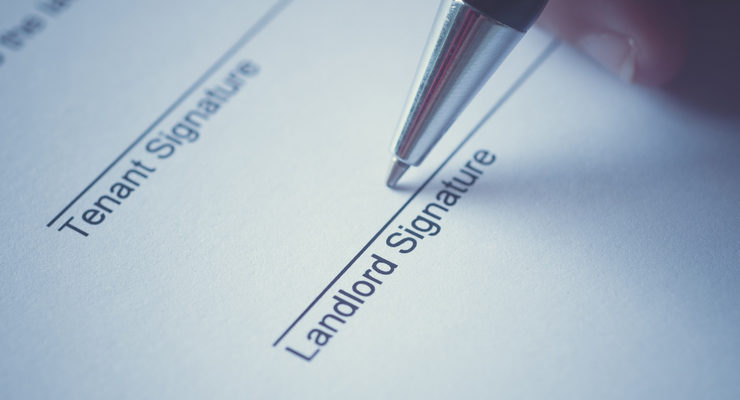
Despite the moratorium on evictions for non-payment related to COVID-19 hardship, property owners who don’t own their building’s outright still owe mortgage payments.
The current, unusual situation with respect to rent is leading to frustration among some landlords, according to Bill Podley, partner at the deasy penner podley real estate firm in Pasadena.
“But it’s very frustrating because, in California, it’s my understanding that as long as Gov. Newsom extends the State of Emergency, evictions cannot take place,” Podley said. “So the landlords are left with the reality that either they’ve stopped making their mortgage payments or they borrow money to do so and hope that most of their tenants will get back on their feet sooner than later.”
“The reality is, landlords have no real recourse at this point,” he added.
Podley said he did not know of any landlords who have been foreclosed on due to COVID-related nonpayment of rent. “They probably exist, but I’m not aware of any.”
Programs set up to help tenants meet their rent, such as Pasadena’s Emergency Rental Assistance (ERA) Program, are also beneficial to landlords, said Bill Huang, the city’s director of housing.
The back rent provided under the program “is paid directly to the landlord,” Huang said.
The policy enacted by Newsom on Aug. 31 is primarily geared to assisting renters, but also includes considerations for some landlords.
“The legislation also extends anti-foreclosure protections in the Homeowner Bill of Rights to small landlords; provides new accountability and transparency provisions to protect small landlord borrowers who request CARES-compliant forbearance; and provides the borrower who is harmed by a material violation with a cause of action,” according to the statement from the governor’s office.
Large apartment complexes and other big properties owned by corporate entities may be better positioned to weather the pandemic, but Podley said a significant number of landlords are individuals, such as retirees, who own a small number of units as an investment.
“I don’t think it’s fair, but I think it’s reality unless and until the government lifts orders which restrict landlords from doing their best to recover or to evict a tenant or ask the tenants to move out from nonpayment of rent. They’re caught between a rock and a hard place. That’s the bottom line,” Podley said.
“They’re saying that landlords are entitled to recover unpaid rent. But how do we know the tenants are going to be able to make it up?”
Adam Bray-Ali of Coldwell Banker Realty in Pasadena, who has owned rental properties in Los Angeles for two decades, described the current system as “a huge mess” that has left him frustrated and worried about the future.
“It’s gotten far more complicated in the last couple of weeks,” he said. “I now personally have tenants that are choosing not to pay their rent who are saying that they are not going to pay the rent until they’re forced to. And even then they may just leave.”
While he said he sympathizes with renters’ situations, he believes some are taking advantage of the situation.
“It puts me in a position of not being able to pay the obligations to keep the building maintained,” Bray-Ali said.
To stay afloat, “What I did was I borrowed money,” he said. “I applied for, and I did receive a loan from the thing that’s called the Economic Injury Disaster Loans, or the EIDL. But that will have to be paid back.
“Not all landlords are in this situation, but there are a good number of landlords that are in a position where their tenants are either not paying rent right now or are unable to pay all of the rent right now,” he added.
The current policies in place in response to the pandemic are “an extraordinarily complicated mess,” according to Bray-Ali.
Once the policies are lifted, “The landlords would then have the ability to do a small claims lawsuit next year and potentially get a judgment for unpaid rent, but that would not include possession of the property,” he said.
“If they can’t get current on their old rent, then you can sue them and you can get a judgment, which can track that person for a decade or more until they finally pay you back,” Bray-Ali said.
“But collecting it is generally beyond the scope and skill set of most small landlords. So what good does it do? We’re going to find out the answer,” he said.
Bray-Ali said he approached his bank about options to reduce or delay mortgage payments due to the lack of rent.
“But then I learned that if I was in that situation and I was going to try to get a loan, they would not lend me money,” he said. “I had tried to refinance a loan to take advantage of the lower interest rate, but because I have [tenants] not paying their rent, I cannot get a loan on that property.”
In the meantime, Bray-Ali said he’s using the disaster loan to keep mortgages up to date. “I’m increasing my debt, but I’m keeping things paid. So I’m just shuffling money right now and trying to make it work.”
Some landlords, including Bray-Ali, have offered to forgive overdue rent if the tenant will simply move, he said. In the case of one tenant who Bray-Ali said he made such an offer to, it was reduced, and the rent continues to go unpaid. “And that was several months ago.”
“I want to protect my money, but I also am very cognizant and aware that there are people that are struggling with health,” Bray-Ali said. “I’m not happy about them experiencing that.” But at the same time, “I’m certainly not happy that I’m having to subsidize other people’s living expenses, but I’m also super-cognizant that by the grace of God go I,” he said.
“We’re going to get through it. I have to be optimistic, because otherwise, honestly, it would just be debilitating.”
Leon Khachooni, a landlord in the San Gabriel Valley, said there’s no doubt things have been tough, but in his experience, most tenants and landlords are doing their best to work together.
He said his primary concern was what would happen once the rent moratorium is lifted.
“I don’t think the real economic hardships are going to start to be felt until next spring,” he said.
“One of the reasons that the landlords are very sort of disheartened is not only are they not getting any help from any governmental source, whether it’s state or federal, but they don’t have a lot of faith in the fact that the small claims court system is going to be able to recover any of the year’s rent, so that could be piling up,” according to Khachooni.
“As anyone who has owned an apartment or managed property knows going through evictions, you rarely recover any of lost rent or income through those processes, so they have very little faith in that,” he said. “So we’ll see, and hopefully, things will be a little different this time around because of COVID. But again, everyone’s just trying to tough it out.”
See also:
Nearly Half of Pasadena’s $1 Million in Emergency Rental Assistance Program Funds Distributed

















